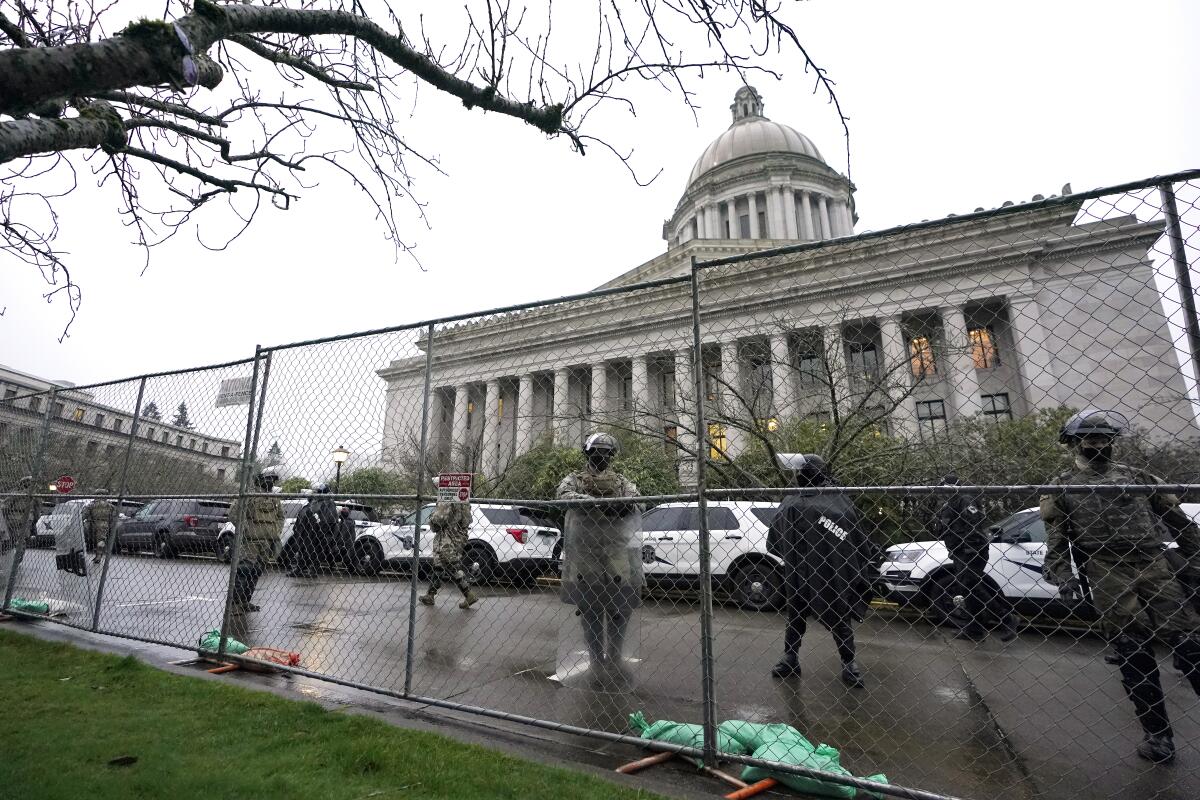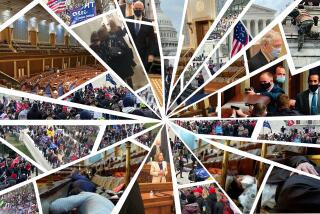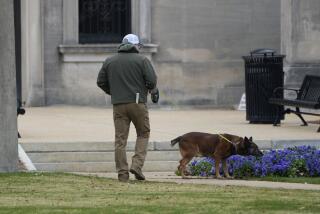State Capitols step up security amid new safety concerns

State Capitols across the nation stepped up security Monday, deploying National Guard units, SWAT teams and extra police officers as several legislatures convened amid heightened safety concerns following last week’s violence at the U.S. Capitol.
Hours after the protections began, the FBI issued bulletins warning of plans for armed protests in all 50 state capitals and in Washington, D.C., ahead of President-elect Joe Biden’s Jan. 20 inauguration.
Washington state Gov. Jay Inslee activated hundreds of National Guard troops to help state police keep order at the state Capitol and defend security fencing. At least two people were arrested Monday, including a woman who, according to state police, used a recreational vehicle to block a roadway and refused to comply with orders to move.
Later, about 20 people gathered outside the security fencing, including a man who tried to walk past authorities as lawmakers were to begin their session. He was taken into custody after shouting, “I have every right to witness this.”
At the Georgia Capitol, a state patrol SWAT team walked the perimeter wearing fatigues and carrying rifles while lawmakers gathered inside for the start of a two-year term.
In Michigan, a state commission voted Monday to ban the open carrying of weapons in the Capitol building.
Legislatures convened in more than half a dozen states. Because of concerns about the coronavirus, many state Capitols had already adopted procedures to curb the potential for large crowds, including arranging for lawmakers to meet remotely. Those steps greatly reduced the number of people who are actually working in Capitol buildings.
After insurrectionists backing President Trump overran the U.S. Capitol last Wednesday, some governors and lawmakers began ramping up security because of online threats suggesting that more mobs could target state Capitols.
In Idaho, doors to the House and Senate chambers were locked Monday morning, and two Idaho state troopers were stationed at each entrance. In past years, the doors were propped open while an unarmed statehouse staff member controlled access.
During a special session last August, a group of people including anti-government activist Ammon Bundy forced their way past overwhelmed troopers and filled the Idaho House gallery despite COVID-19 restrictions limiting the number of people allowed in. The group called People’s Rights was founded by Bundy and opposes the restrictions. Its leaders were urging members to show up Monday at the Capitol.
Glen Thorne of Buhl, Idaho, about a two-hour drive to the southeast of Boise, wore a handgun in a holster on his right hip Monday at the Capitol. Openly carrying weapons in the building is legal.
Thorne said he wanted to make sure Republican Gov. Brad Little “knows that we’re here.”
“We want to end the state of emergency for Idaho. It’s ridiculous. We all want to go back to a normal state of living,” Thorne said. He did not think the group would cause trouble.
“This is Idaho. We’re all gun-carrying, respectful Republicans,” he said.
Republican Idaho Rep. Chad Christensen said he brought a bulletproof vest.
“If I feel things are going to get heightened up, I may put it on,” said Christensen, who also carried a .45-caliber handgun on his belt, which is standard procedure for him.
In Georgia, Republican Gov. Brian Kemp and other officials approved construction of a fence around the Capitol last year after racial injustice protests. Kemp has kept a group of National Guard soldiers on active duty to protect state properties since last summer, when protesters smashed windows and set a fire at state public safety headquarters in Atlanta.
Georgia House Speaker David Ralston, another Republican, said he had “full confidence” that authorities would be “ready to do whatever needs to be done to to protect the members, staff, the public, the media and all the people that have to be here.”
Inslee activated 750 members of the National Guard. On the same day as the deadly riot in Washington, D.C., a group of armed people broke down a gate outside the governor’s mansion in Olympia, Wash., and made it to the porch and front yard before being convinced to leave by police.
On Monday, lawmakers had to drive through an area gated off and guarded by the National Guard to park outside the Capitol. A small group of protesters gathered in the morning, shouting that they should be let inside the building to observe lawmakers.
“It’s a sad day for our country, isn’t it, where you have to have that kind of security around the people who were elected to represent you,” Democratic state Sen. Patty Kuderer said. “Unfortunately, we live in troubling times, and I do believe we’re going to get through it, but it’s going to take a lot of time and a lot of effort.”
House Majority Leader Pat Sullivan said that both the pandemic protocols, plus the security concerns, will make lawmakers’ work more difficult, but he said that “people are counting on us to pass budgets and laws that help them in their daily life.”
In Michigan, where armed demonstrators against coronavirus restrictions entered the Capitol last year, there was little discussion as the open-weapons ban was approved. Michigan lawmakers are to return to session Wednesday.
Some of the anti-government extremists accused in a plot to kidnap Democratic Gov. Gretchen Whitmer had attended the lockdown protests. Prosecutors say the accused ringleader initially talked of recruiting 200 men to storm the building, take hostages and “execute tyrants.”
A secondary plan involved locking exits and setting the statehouse on fire, according to court documents.
More to Read
Sign up for Essential California
The most important California stories and recommendations in your inbox every morning.
You may occasionally receive promotional content from the Los Angeles Times.










